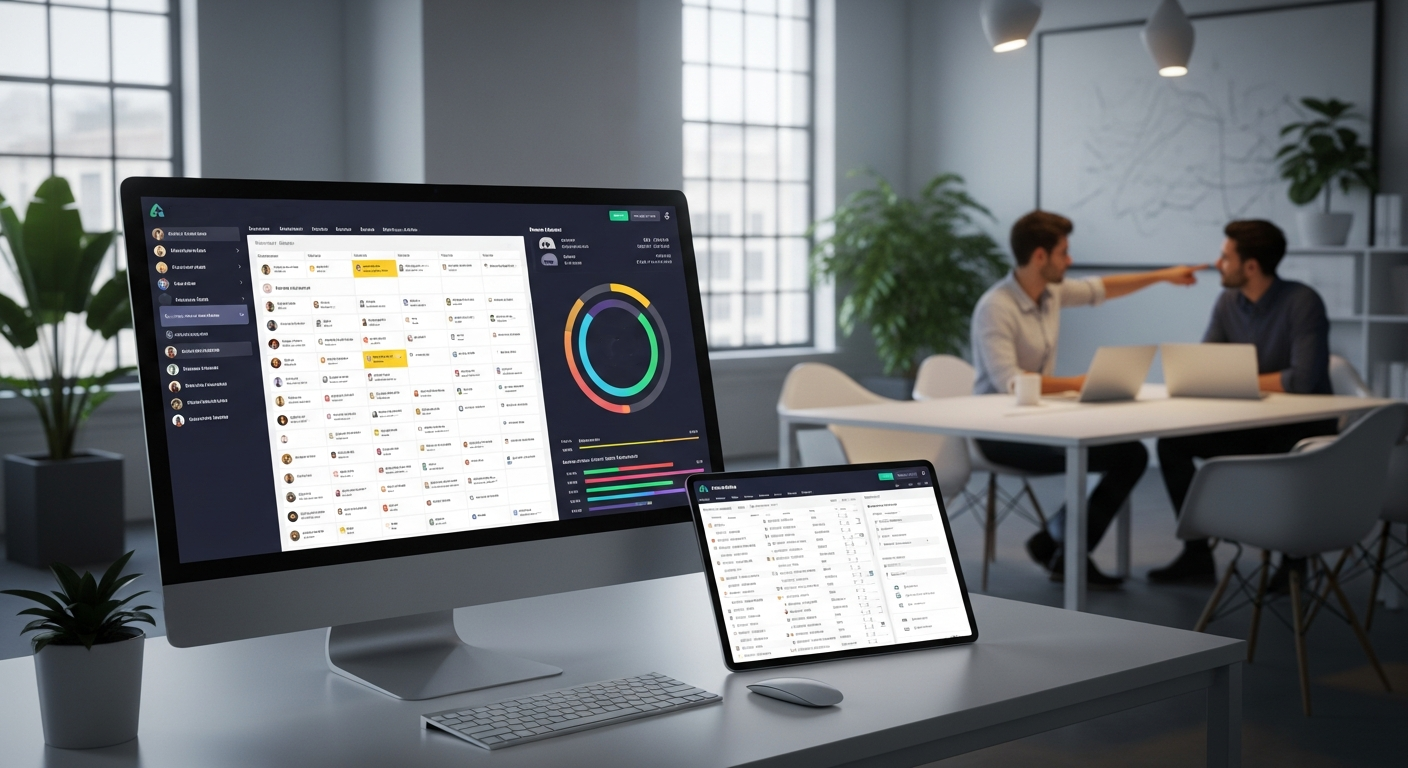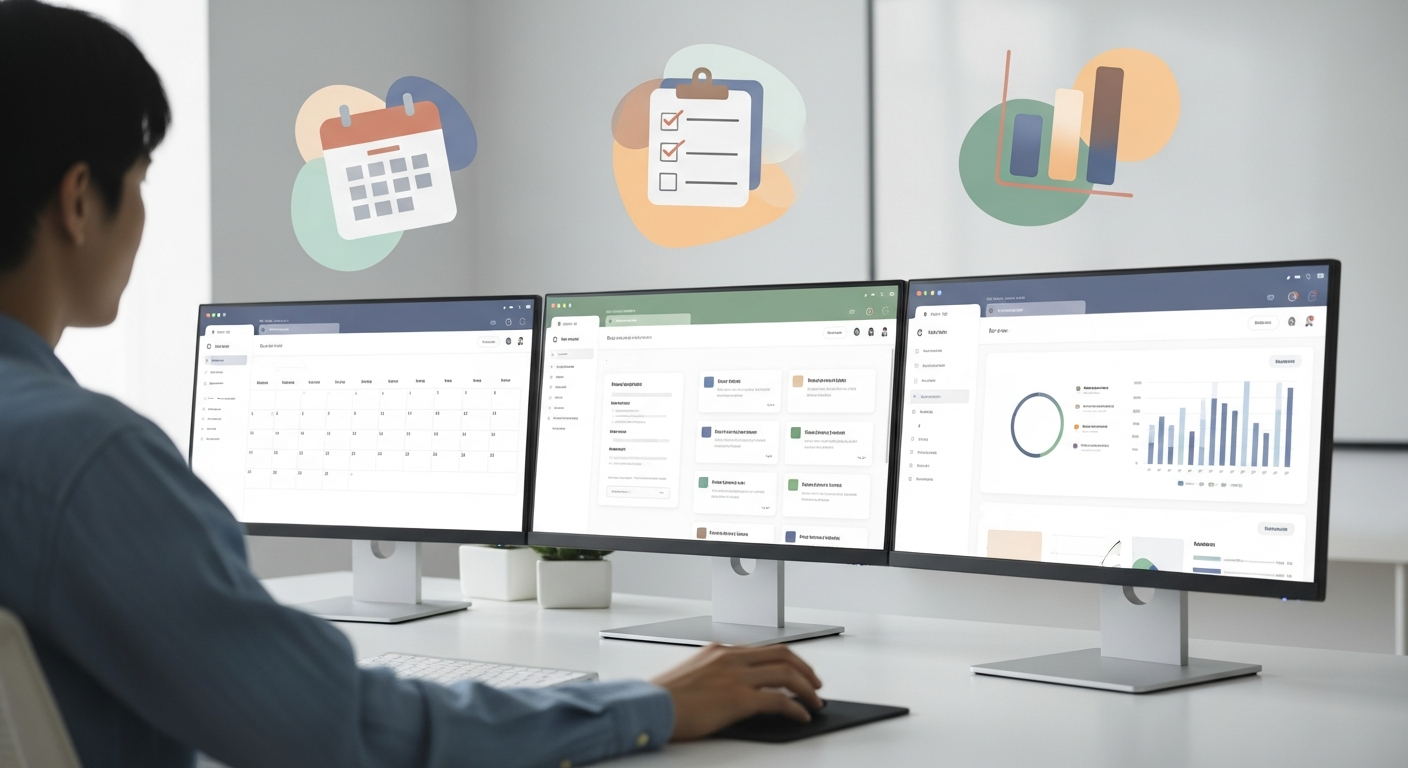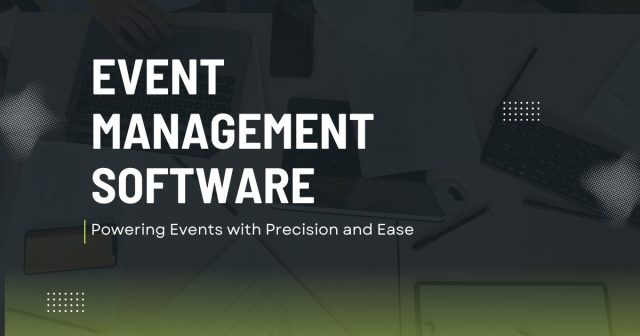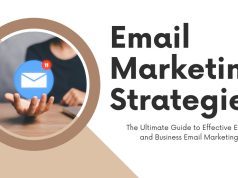The event management software market is rapidly growing, transforming how community events are planned and experienced. These tools streamline registration, vendor management, marketing, and analytics while enhancing attendee engagement. Mobile features, cashless payments, and sustainability options help organizers create efficient, memorable, and community-focused events.
The Evolution of the Event Management Software Market

Market Growth and Driving Forces
The event management software market has experienced remarkable expansion, driven by several key factors that directly impact community event organizers.
Digital transformation has accelerated adoption across all event types. Community organizers who once relied on spreadsheets and phone calls now have access to sophisticated platforms that streamline every aspect of event planning and execution.
Mobile-first approaches have become essential as attendees expect seamless smartphone experiences. Event management software providers have responded by developing intuitive mobile apps that enhance on-site experiences and improve attendee engagement.
Key Market Segments
The event management software market serves diverse needs, from large-scale corporate events to intimate community gatherings. Understanding these segments helps organizers select appropriate tools for their specific requirements.
Corporate and business events represent the largest market segment, but community and social events are showing the fastest growth rates. This trend reflects increasing recognition that local events benefit significantly from professional-grade management tools.
Cloud-based solutions dominate the market due to their accessibility, scalability, and cost-effectiveness. These platforms allow community organizers to access powerful features without significant upfront investments or technical expertise.
Core Features Transforming Event Organization

Registration and Ticketing Systems
Modern event management software provides comprehensive registration capabilities that simplify attendee management while gathering valuable data for future planning.
Automated registration processes eliminate manual data entry and reduce errors. Attendees can register online, receive confirmation emails, and access event information through personalized portals.
Payment processing integration allows organizers to collect fees securely and efficiently. This feature particularly benefits community events that depend on vendor fees or ticket sales for funding. Real-time capacity tracking prevents over-registration and helps organizers make informed decisions about space allocation and resource planning. For tips on digital outreach, see our Guide to Event Email Marketing Software.
Real-time capacity tracking prevents over-registration and helps organizers make informed decisions about space allocation and resource planning.
Vendor and Exhibitor Management
Community events often rely on local vendors and exhibitors who provide products, services, and entertainment. Event management software streamlines these relationships through dedicated vendor portals.
Application and approval workflows ensure vendors meet event standards while providing transparent communication throughout the selection process. This systematic approach helps maintain event quality and vendor satisfaction.
Booth assignment and layout tools help organizers maximize space utilization while creating optimal traffic flow patterns. Visual mapping features allow vendors to understand their locations and plan accordingly.
Communication tools keep vendors informed about important updates, setup requirements, and event logistics. Automated messaging reduces administrative workload while ensuring consistent information delivery.
Marketing and Promotion Tools
Effective marketing is crucial for community event success, and event management software provides integrated promotional capabilities.
Email marketing features allow organizers to communicate with past attendees, potential participants, and community members. Segmented lists enable targeted messaging that resonates with specific audiences.
Social media integration helps amplify event promotion across multiple platforms. Automated posting schedules and content suggestions reduce marketing workload while maintaining consistent online presence.
Website integration creates seamless experiences where promotional content drives directly to registration pages. This streamlined approach improves conversion rates and reduces barriers to participation. For broader marketing strategies, check out Event Marketing That Actually Works.
Analytics and Reporting
Data-driven decision making transforms event planning from guesswork to strategic planning. Event management software provides comprehensive analytics that inform future improvements.
Attendance tracking reveals patterns that help organizers understand community preferences and optimize scheduling. This information guides decisions about event frequency, timing, and programming.
Vendor performance metrics help identify successful partnerships and improvement opportunities. Understanding which vendors generate the most interest allows organizers to refine their selection criteria.
Financial reporting provides clear insights into event profitability and cost structures. This transparency supports budget planning and demonstrates value to stakeholders and sponsors.
Benefits for Community Event Organizers

Operational Efficiency
Event management software dramatically reduces administrative tasks that consume organizer time and energy. Automation handles routine communications, data management, and reporting.
Streamlined workflows eliminate duplicate data entry and reduce errors. Information entered once propagates throughout the system, ensuring consistency across all event communications and documentation.
Centralized information storage makes it easy to access vendor details, attendee lists, and event documentation. This organization reduces time spent searching for information and improves response times to inquiries.
Enhanced Attendee Experience
Modern event management software prioritizes user experience, creating smooth interactions that encourage participation and return visits.
Mobile-optimized registration processes make it easy for community members to sign up and stay informed. Push notifications and in-app messaging keep attendees engaged before, during, and after events.
Personalized communications based on attendee preferences and history create more relevant experiences. Targeted messaging about specific vendors, activities, or programs increases engagement and satisfaction.
Self-service options allow attendees to update their information, access tickets, and find event details without contacting organizers. This convenience improves satisfaction while reducing administrative burden. For ideas on improving engagement, check out Event-Based Marketing Guide.
Improved Vendor Relations
Strong vendor relationships are essential for successful community events. Event management software provides tools that support these partnerships throughout the event lifecycle.
Transparent communication keeps vendors informed about important updates, changes, and opportunities. Automated notifications ensure everyone receives consistent information simultaneously.
Streamlined setup processes reduce vendor stress and improve their event experience. Clear instructions, maps, and contact information help vendors prepare effectively.
Performance feedback tools help vendors understand their success and identify improvement opportunities. This information supports long-term relationship building and event enhancement.
Selecting the Right Event Management Software

Assessing Your Needs
Choosing appropriate event management software requires careful consideration of your specific requirements, budget, and technical capabilities.
Event size and complexity determine feature requirements. Small community events may need basic registration and communication tools, while larger festivals require comprehensive vendor management and analytics capabilities.
Budget constraints influence platform selection and feature prioritization. Many providers offer tiered pricing structures that allow organizers to start with basic features and upgrade as needs grow.
Technical expertise within your organization affects implementation success. User-friendly platforms with strong customer support are essential for teams without dedicated IT resources.
Key Evaluation Criteria
Several factors should guide your software selection process to ensure you choose a platform that meets your current and future needs.
Ease of use determines adoption success across your team and stakeholders. Intuitive interfaces reduce training time and increase user satisfaction.
Integration capabilities allow your event management software to work with existing tools and systems. This compatibility reduces duplicate work and improves data accuracy.
Scalability ensures your chosen platform can grow with your events. Consider whether the software can handle increased attendance, additional vendors, and expanded programming.
Customer support quality becomes crucial when you encounter issues or need assistance. Look for providers with responsive support teams and comprehensive documentation.
Implementation Best Practices
Successful software implementation requires careful planning and change management to ensure smooth transitions and user adoption.
Start with a pilot event to test features and workflows before full implementation. This approach allows you to identify issues and make adjustments without risking major event success.
Provide comprehensive training for all team members who will use the software. Include backup personnel to ensure continuity when key staff are unavailable.
Establish clear processes and documentation for common tasks. This standardization reduces errors and ensures consistent experiences for vendors and attendees.
Future Trends in Event Management Software
Artificial Intelligence and Automation
AI-powered features are increasingly common in event management software, offering capabilities that enhance planning and execution efficiency.
Predictive analytics help organizers anticipate attendance patterns, vendor needs, and resource requirements. These insights support more accurate planning and improved event outcomes.
Automated scheduling optimizes vendor placement, activity timing, and resource allocation. AI algorithms consider multiple factors simultaneously to create optimal event layouts and programming.
Chatbots and virtual assistants provide 24/7 support for attendee and vendor inquiries. These tools reduce administrative workload while improving response times.
Enhanced Mobile Experiences
Mobile technology continues to evolve rapidly, offering community event organizers innovative ways to engage attendees and streamline operations. Event management software leverages these mobile advancements to create more seamless, interactive, and personalized experiences for everyone involved.
Augmented reality (AR) features are increasingly integrated into event apps, allowing attendees to explore event spaces in entirely new ways. For example, AR maps can guide visitors to specific vendors, activity zones, or stages, while interactive overlays highlight featured attractions or provide additional information about exhibitors. These immersive experiences not only make navigation easier but also leave a lasting impression, encouraging attendees to return to future events.
Location-based services add another layer of personalization. Attendees can receive notifications about nearby activities, workshops, or promotions tailored to their interests and real-time location. This ensures participants never miss relevant experiences, boosting engagement and creating a sense of discovery within the event. Organizers can also use aggregated location data to analyze traffic flow, optimize layouts, and improve crowd management.
Mobile payment integration further enhances convenience for both attendees and vendors. Cashless transactions, digital ticketing, and in-app purchases reduce friction, speed up queues, and eliminate errors associated with manual handling. Vendors benefit from quicker sales processing and real-time transaction reporting, while attendees enjoy faster, safer, and more convenient payment options.
Ultimately, these mobile-first capabilities transform community events into dynamic, tech-enabled experiences. By combining AR, location services, and mobile payments, event management software helps organizers create events that are not only efficient and well-managed but also engaging, memorable, and tailored to the preferences of each participant.
Sustainability and Environmental Impact
Environmental consciousness is driving demand for digital solutions that reduce paper waste and improve resource efficiency.
Digital ticketing and communications eliminate paper waste while providing more flexible and convenient experiences. QR codes and mobile apps replace printed materials.
Virtual and hybrid event capabilities allow broader participation while reducing travel-related environmental impact. These options expand community reach beyond geographic boundaries.
Resource optimization features help organizers minimize waste and maximize efficiency. Data insights guide decisions about food quantities, material purchases, and space utilization.
Building Stronger Communities Through Technology
The event management software market continues to evolve rapidly, driven by changing expectations and technological advances. Community event organizers who embrace these tools position themselves to create more engaging, efficient, and successful events.
Technology should enhance rather than replace the human connections that make community events meaningful. The most successful organizers use event management software to handle administrative tasks while focusing their energy on creating authentic experiences that bring people together.
Start by identifying your biggest operational challenges and selecting software features that address these pain points. Focus on tools that improve attendee and vendor experiences while reducing your administrative burden.
Remember that software implementation is an ongoing process, not a one-time event. Plan for training, process refinement, and continuous improvement as you discover new ways to leverage technology for community benefit.
The communities that thrive are those that successfully blend digital efficiency with authentic human connection, creating events that serve both practical needs and emotional desires for belonging and engagement.
Event management software is making it easier than ever to plan and execute meaningful community events—but creating impact goes beyond logistics. Measuring brand authenticity in real time helps ensure your events genuinely connect with your audience and reflect your values. Together, these tools support more engaging and trustworthy brand experiences.
Frequently Asked Questions (FAQ)
What is Event Management Software, and who is it for?
Event management software is a digital platform designed to help plan, organize, and execute events efficiently. While it’s widely used for corporate events, it’s increasingly valuable for community organizers managing festivals, markets, fundraisers, and cultural gatherings.
Is Event Management Software suitable for small community events?
Yes. Many platforms offer scalable features and flexible pricing, making them accessible even for small or volunteer-led events. Organizers can start with basic tools like registration and communication and expand as their events grow.
How does Event Management Software improve attendee engagement?
It enhances engagement through mobile-friendly registration, personalized communication, real-time updates, and interactive features. These tools help attendees feel informed, involved, and more connected to the event experience.
Can Event Management Software help manage vendors and sponsors?
Absolutely. Vendor applications, approvals, booth assignments, and communication are all streamlined within the platform. Sponsors also benefit from clearer visibility, reporting, and performance tracking.
Does using Event Management Software require technical expertise?
Most modern platforms are designed for non-technical users. With intuitive dashboards and customer support, organizers can quickly learn how to use the system without specialized IT skills.
How does Event Management Software support sustainability?
By reducing paper usage through digital tickets, communications, and reporting, event management software helps lower environmental impact. It also supports better resource planning, minimizing waste at events.









